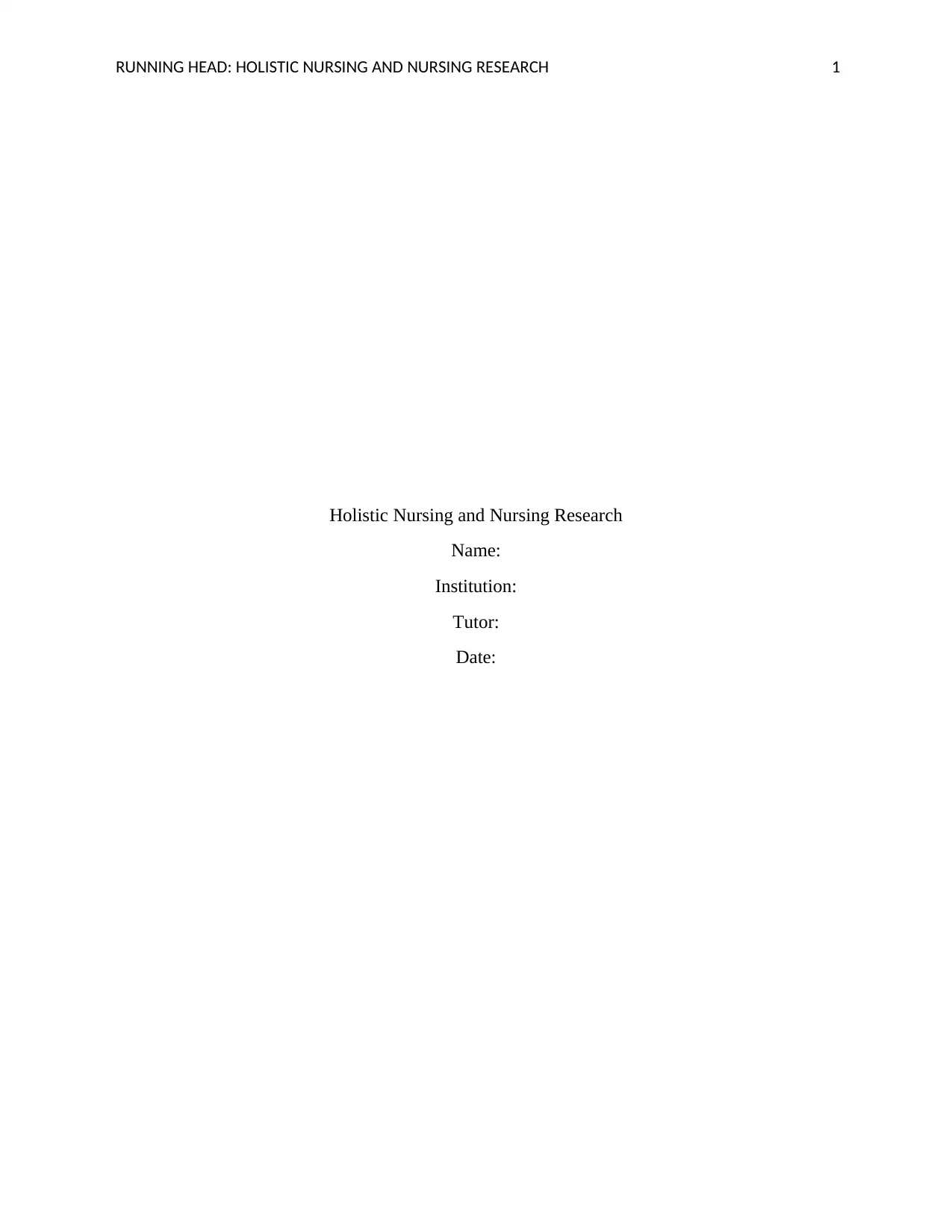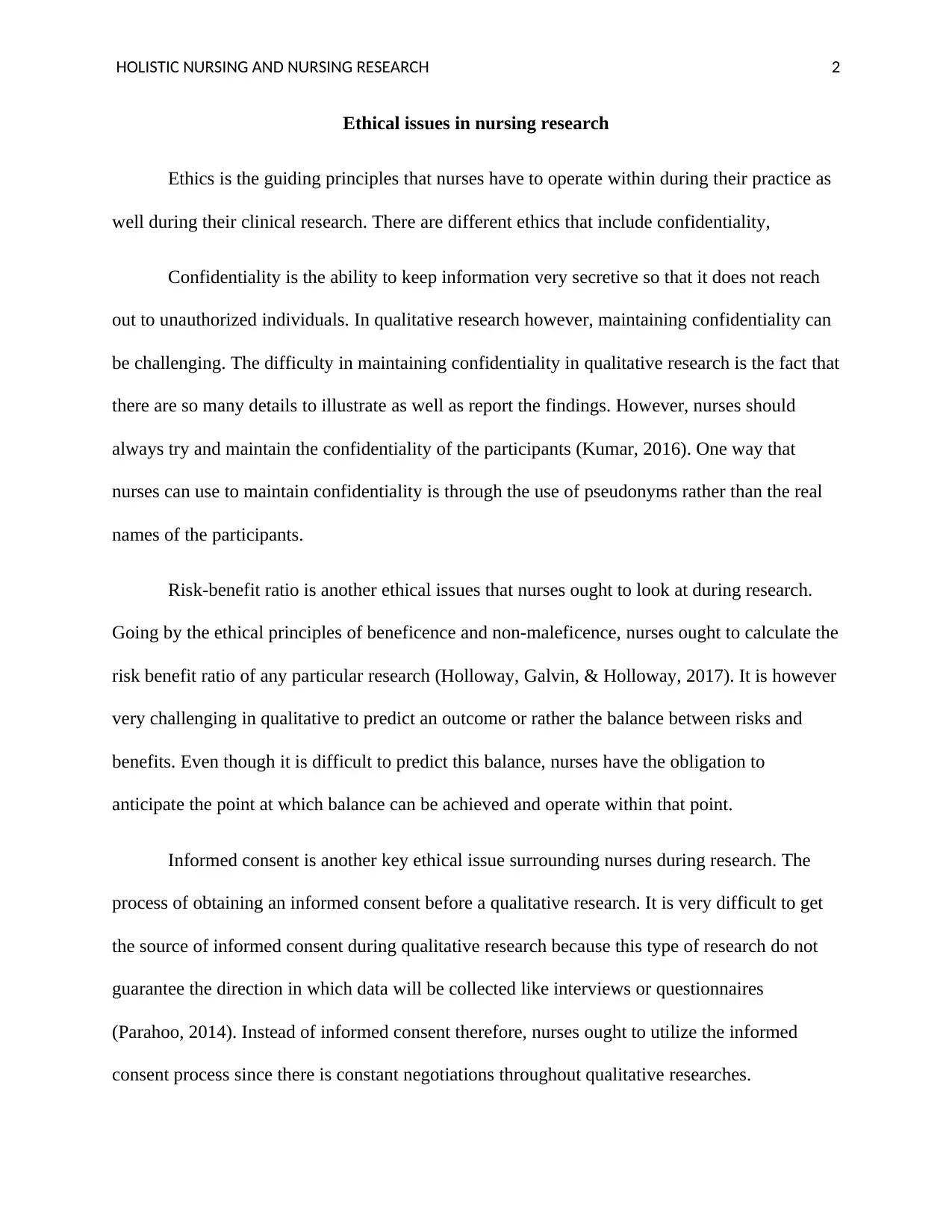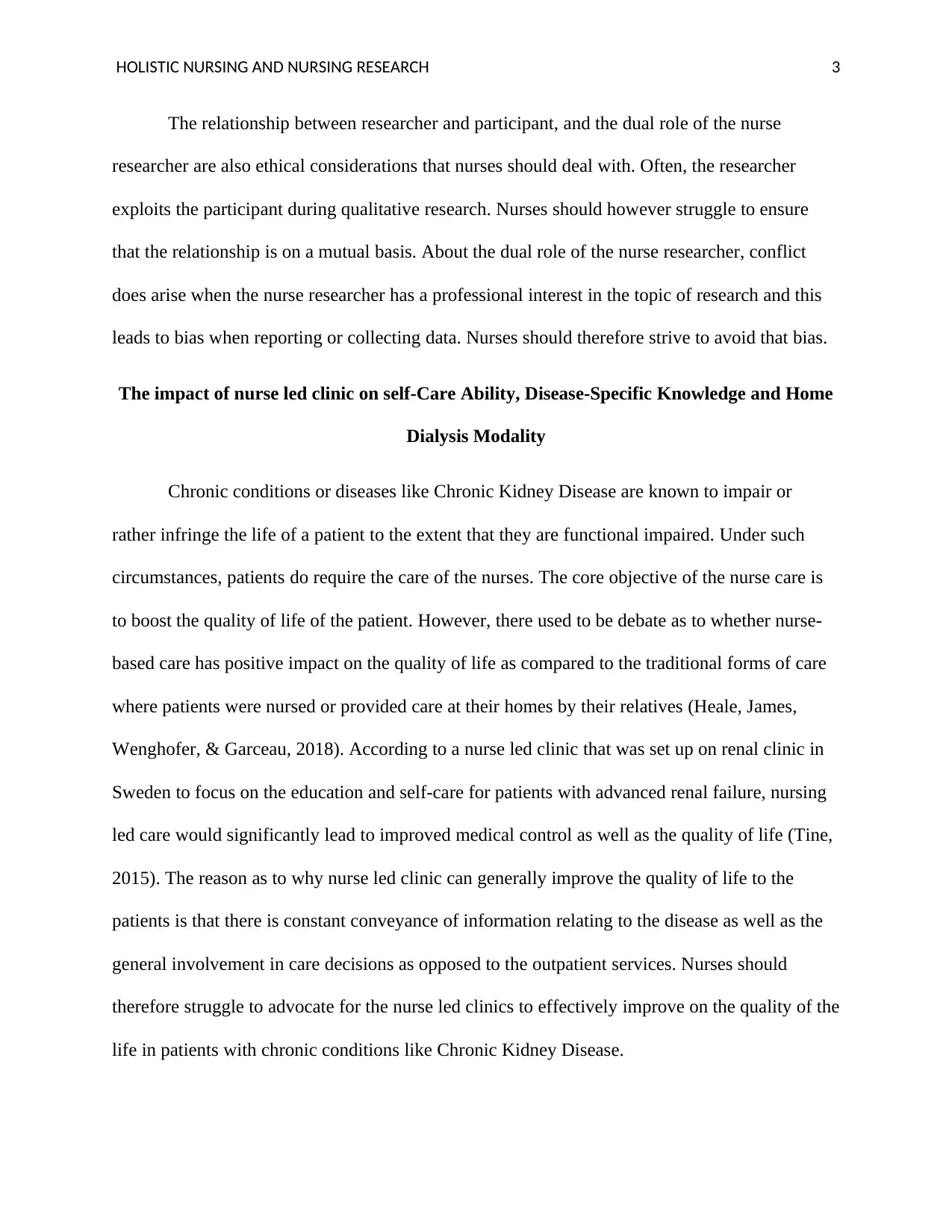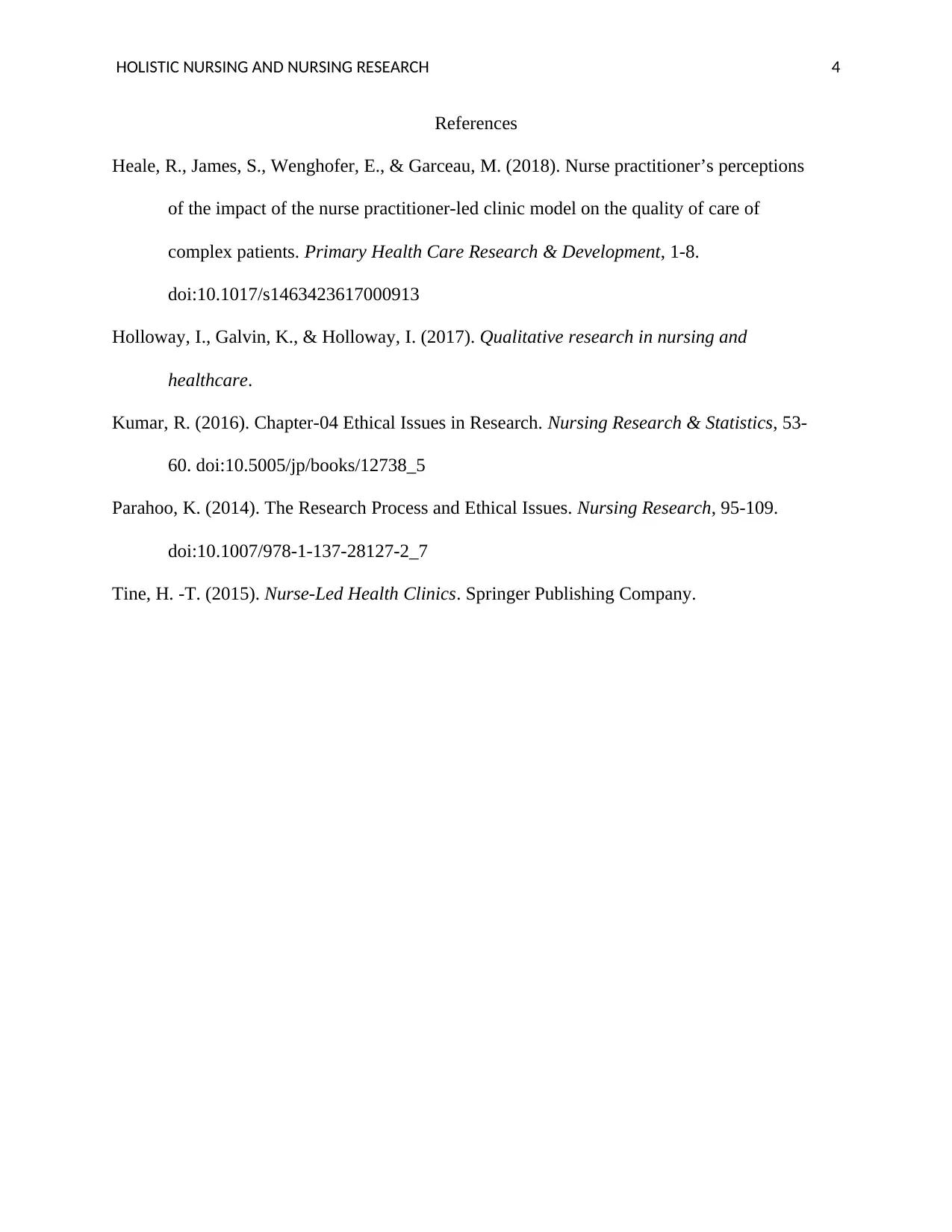Holistic Nursing: Ethical Issues in Research & Nurse-Led Clinics
VerifiedAdded on 2023/06/11
|4
|845
|318
Essay
AI Summary
This essay explores ethical considerations in nursing research, focusing on challenges such as maintaining confidentiality, managing the risk-benefit ratio, obtaining informed consent, and addressing the dual role of the nurse researcher. It highlights the importance of ethical principles like beneficence and non-maleficence in qualitative research. Furthermore, the essay discusses the positive impact of nurse-led clinics on patient outcomes, particularly for individuals with chronic conditions like Chronic Kidney Disease. It references a Swedish renal clinic model that demonstrates improved medical control and quality of life through patient education and involvement in care decisions. The essay advocates for the expansion of nurse-led clinics to enhance the well-being of patients with chronic illnesses. Desklib offers a variety of resources, including solved assignments and past papers, to aid students in their studies.
1 out of 4











![[object Object]](/_next/static/media/star-bottom.7253800d.svg)